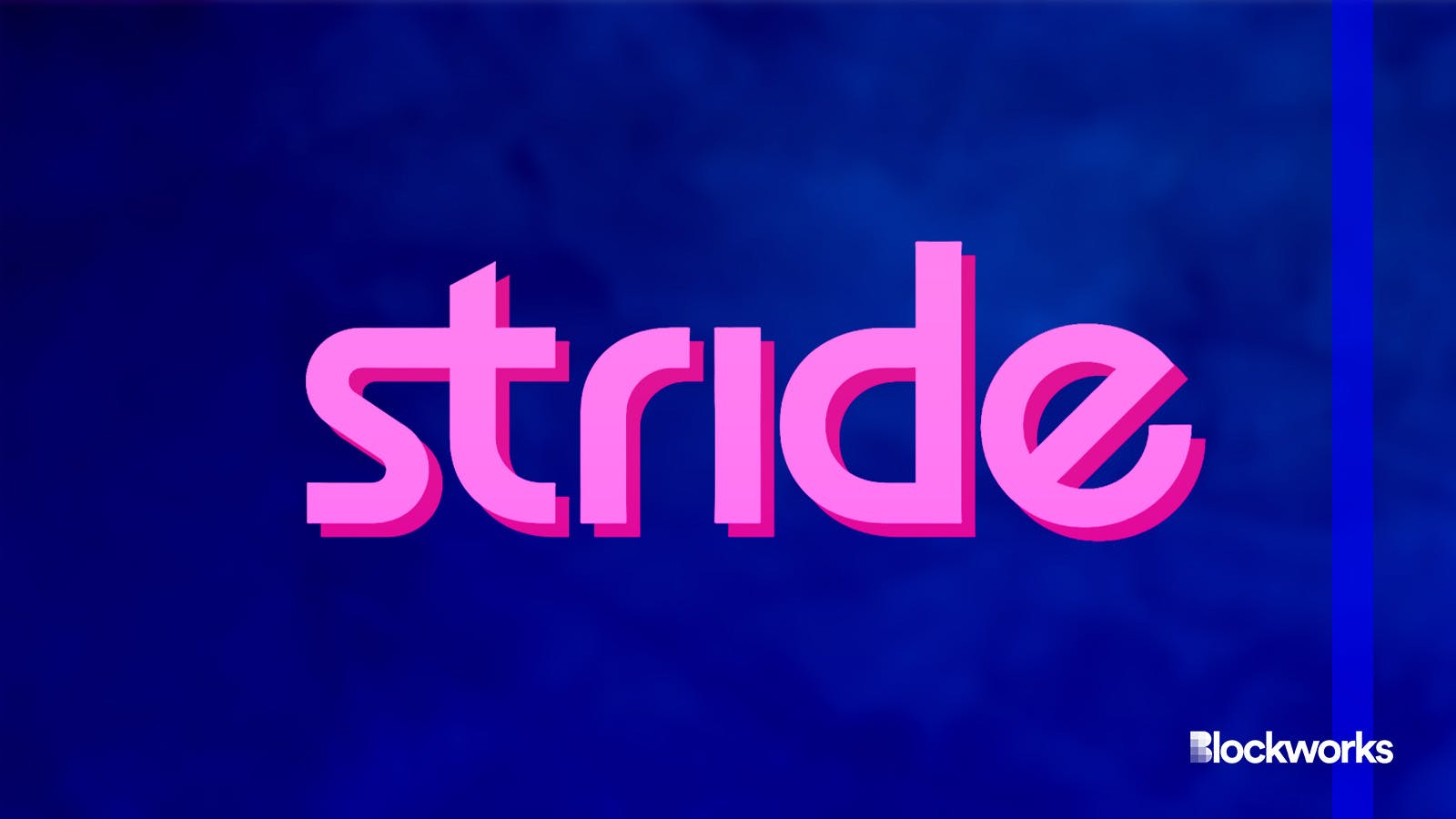Stride will airdrop 5M STRD tokens to stTIA holders
Stride will not be allocating STRD based on a points system

Stride and Adobe modified by Blockworks
Stride, an interchain liquid staking solution, announced that it will airdrop 5 million STRD tokens ($18 million) to stTIA token holders over the next 150 days.
The purpose of this airdrop is to get behind the vision of making stTIA “modular money,” Riley Edmunds, co-founder of Stride Labs, told Blockworks.
Proof-of-stake tokens such as ATOM have struggled to find on-chain usage in the Cosmos ecosystem, as users often prefer to use tokens that offer higher staking rewards in DeFi protocols.
Read more: Stride wants to become the enshrined LST protocol for Cosmos Hub
Unlike ATOM, Edmunds believes that Celestia’s TIA token can take a different path. He notes that having a “secure, neutral, airdrop-inclusive liquid-staked” token of TIA can enable greater on-chain usage and velocity.
5 million STRD is equivalent to 5% of the total token supply, and will be one of the largest airdrops that Stride has done to date.
Unlike traditional airdrops, there is no points system for this particular token allocation scheme. To be eligible for STRD tokens, users simply need to hold either stTIA tokens within the Stride protocol or exchange them on a decentralized exchange (DEX).
For five days post-launch, only stTIA held on the Stride blockchain will be eligible for the airdrop. This will change on Monday, Feb. 5 at 5 am ET, when stTIA eligibility will grow to include Osmosis and Neutron blockchains.
Stride notes that select liquidity pools on these DEXs will be whitelisted, and stTIA and TIA in the pool will also be eligible for the airdrop.
Read more: Celestia opens airdrop for planned modular data availability network
The allocation period of the airdrop will last 150 days and will be split into two separate phases.
The first phase will last 60 days; each day, 50,000 STRD will be allocated pro-rata to addresses holding stTIA in eligible locations.
The second phase of the airdrop will last 90 days, and 22,222 STRD will be allocated each day pro-rata to eligible addresses.
Once a stTIA holder is allocated an airdrop, they must wait 180 days before they are able to claim their STRD token. Once that STRD token is claimed, vesting will begin immediately.
Users allocated STRD tokens will have 90 days to claim, and any unclaimed tokens will be returned to the community pool managed by Stride’s community governance.
Read more: Understanding Jupiter’s tokenomics ahead of its first airdrop
Although Stride cannot guarantee continued eligibility for airdrops to TIA stakers, Edmunds notes that Stride contributors “are committed to securing as many airdrops as possible for stTIA holders and are already in contact with many teams planning to airdrop to TIA stakers to help get stTIA included.”
The team will also provide regular snapshots of stTIA holders to projects on its website to ensure that stTIA holders can be included in future airdrops.
Get the news in your inbox. Explore Blockworks newsletters:
- The Breakdown: Decoding crypto and the markets. Daily.
- 0xResearch: Alpha in your inbox. Think like an analyst.






